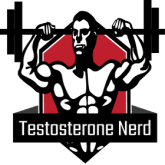The relationship between testosterone and breast cancer treatment has long been a source of confusion in the medical community.
While testosterone is primarily associated with male traits, it also plays a crucial role in the female body, affecting everything from sex drive to muscle mass.
But as scientists continue to explore the complex interplay between hormones and cancer, they’ve discovered a surprising link between testosterone and chemotherapy for breast cancer.
Could this much-maligned hormone actually serve as an ally in the fight against this devastating disease?
Understanding the link between testosterone and breast cancer treatment is a murky, complicated business.
But with the help of cutting-edge research and a few brave pioneers, we’re starting to make some headway.
The Role of Chemotherapy in Breast Cancer Treatment
Breast cancer isn’t something any woman wants to experience, but understanding the treatment options available is vital if you find yourself in that situation.
One key component of breast cancer treatment is chemotherapy.
The goal of chemotherapy is to kill off any cancer cells in the body, but it can come with a host of side effects.
One unexpected side effect is a reduction in testosterone levels.
Testosterone is often thought of as a male hormone, but women have it too.
And when testosterone levels drop, women can experience a range of unpleasant symptoms, such as fatigue, decreased sex drive, and mood swings [1].
Managing testosterone levels during breast cancer treatment is crucial for maintaining quality of life.
So if you find yourself undergoing chemotherapy for breast cancer, be sure to talk to your doctor about ways to keep your testosterone levels in check.
How Chemotherapy Affects Testosterone Levels
For women who have been diagnosed with breast cancer, hormone therapy is a typical course of treatment.
However, the connection between this therapy and testosterone levels is not well understood.
Some chemotherapy treatments can affect testosterone levels, which can in turn impact mood, energy levels, and sexual desire [2].
Not only does treatment for breast cancer affect a woman’s physical health, it can also cause emotional distress.
For some women, the loss of libido and sexual function can be particularly devastating.
However, there are steps that women can take to manage these side effects, including exercise and therapy [3].
It is essential for women to talk openly with their doctors about their treatment options and any concerns they may have.
By taking an active role in their healthcare, women can ensure that they are getting the best possible care for their breast cancer.
Symptoms of Low Testosterone in Women
As women, we tend to associate testosterone mainly with men and their aggressive and muscular physique.
However, testosterone is actually an essential hormone for both genders as it affects everything from sexual function, bone density, and even mental wellbeing.
In fact, a reduction in testosterone levels can lead to serious negative side effects, including:
- Depression
- Loss of muscle mass
- Fatigue
- Low sex drive
Unfortunately, many women undergoing chemotherapy for breast cancer may experience low testosterone levels as a result of their treatment.
This is why it is important for women to be aware of the symptoms of low testosterone, as it could affect their quality of life post-chemo.
It is crucial to communicate with your doctor about any concerns regarding testosterone levels and how it may relate to chemotherapy for breast cancer.
Remember, staying informed and being proactive about your health is key in any medical journey.
Risks and Benefits of Testosterone Replacement Therapy
Breast cancer treatment and hormonal imbalances are intrinsically linked, and women must understand the potential risks and benefits of testosterone replacement therapy (TRT).
Some breast cancer patients may experience hormonal imbalances due to chemotherapy, which can lead to lower testosterone levels.
TRT can be used to alleviate symptoms such as fatigue, low libido, and muscle loss.
There’s a lack of scientific evidence that TRT or HRT (hormone replacement therapy), lead to an increased risk of breast cancer recurrence [4].
More research is needed to comprehend the relationship between TRT and breast cancer treatment fully.
It’s a perplexing issue that demands further investigation and careful consideration.
Ultimately, every woman undergoing breast cancer treatment should consult her doctor and weigh TRT’s potential risks and benefits before deciding on a course of action.
Don’t be afraid to ask questions.
Alternative Therapies for Managing Testosterone and Breast Cancer
As the world grapples with the unforgiving reality of cancer every day, it is understandable that researchers are striving for better alternatives for treating breast cancer with hormone therapy and chemotherapy.
While chemotherapy has paved the way for treating the disease, the link between testosterone and breast cancer is a fact that cannot be ignored [5].
While testosterone has been identified as a hormone that promotes breast cancer growth, it also plays an essential role in maintaining a patient’s quality of life.
The balancing act between suppressing testosterone to prevent cancer from growing and maintaining quality of life needs to be carefully calibrated.
Thankfully, alternative therapies exist, which can help manage testosterone levels without compromising quality of life or the efficacy of chemotherapy.
It is important to remember that the journey towards breast cancer recovery is unique to every individual, and alternative therapies must be carefully considered before deciding on a treatment plan.
Conclusion
In conclusion, the potential benefits of testosterone therapy during chemotherapy for breast cancer cannot be ignored, but the risks associated with hormonal treatments must also be considered.
As research continues to unfold, doctors and patients must weigh hormone therapy’s potential advantages and drawbacks to make informed decisions about treatment plans.
The complexities surrounding breast cancer treatment can be overwhelming, but with advancements in medical technology and ongoing research, there is hope for a better future.
It’s a delicate balance between aggressive treatment and quality of life, but patients deserve access to all available information to make informed decisions about their health.
As always, the journey toward a cure for breast cancer is ongoing, but each step forward brings us closer to a bright and hopeful future.
FAQs
How does chemotherapy affect testosterone levels in women with breast cancer?
Chemotherapy can have a significant impact on testosterone levels in women with breast cancer.
The treatment targets rapidly dividing cancer cells but can also affect healthy cells, including those responsible for hormone production.
Here are the three most important things to know about the connection between chemotherapy and testosterone levels:
- Chemotherapy drugs can suppress testosterone production: Some chemotherapy drugs, such as cyclophosphamide and doxorubicin, can interfere with the function of the ovaries, which are responsible for producing testosterone in women. This can lead to decreased testosterone levels during and after chemotherapy.
- Reduced testosterone levels may cause various symptoms: Low testosterone levels can contribute to symptoms such as fatigue, decreased sex drive, mood changes, and loss of muscle mass. These symptoms can affect a woman’s overall well-being and quality of life.
- Testosterone replacement therapy may be an option: In some cases, healthcare providers may consider testosterone replacement therapy to alleviate the symptoms associated with low testosterone levels. However, the decision to pursue this treatment should be made on an individual basis, taking into account the potential benefits and risks.
Can testosterone affect the effectiveness of chemotherapy in breast cancer treatment?
The role of testosterone in breast cancer treatment is complex, and its effect on chemotherapy outcomes is still under investigation.
Here are three key points to consider:
- Testosterone may promote cancer growth: High levels of testosterone have been associated with an increased risk of developing breast cancer. In some cases, testosterone can stimulate the growth of hormone receptor-positive breast cancer cells. Therefore, it is important to carefully assess the potential risks and benefits of testosterone therapy in breast cancer patients.
- Testosterone levels may influence treatment response: Studies have suggested that testosterone levels may impact the response to chemotherapy in breast cancer patients. Lower testosterone levels have been associated with better treatment outcomes and improved survival rates. However, further research is needed to fully understand the mechanisms behind this relationship.
- Individualized treatment approaches are crucial: Due to the complexity of the interactions between testosterone and breast cancer, it is essential to adopt an individualized approach to treatment. Healthcare providers consider various factors, such as hormone receptor status, tumor characteristics, and overall health, when making treatment decisions.
Are there any specific precautions or considerations for women with high testosterone levels undergoing chemotherapy?
Additional precautions and considerations may be necessary for women with high testosterone levels undergoing chemotherapy.
Here are the top three points to be aware of:
- Monitoring testosterone levels: Regular monitoring of testosterone levels is essential to assess any changes and adjust treatment plans accordingly. This allows healthcare providers to identify potential imbalances and optimize treatment strategies.
- Collaboration between healthcare providers: It is important for oncologists and endocrinologists to collaborate closely when managing breast cancer patients with high testosterone levels. This multidisciplinary approach ensures comprehensive care and reduces the risk of complications.
- Individualized treatment plans: Treatment plans should be tailored to the individual needs of each patient. Factors such as the underlying cause of high testosterone levels, the stage of breast cancer, and the specific chemotherapy regimen should all be considered when developing a personalized treatment approach.
Can testosterone supplementation be used to counteract the side effects of chemotherapy?
Testosterone supplementation is not typically used to counteract the side effects of chemotherapy in breast cancer patients.
Here are three important considerations:
- Potential risks and interactions: Testosterone supplementation carries potential risks and may interact with other medications used during breast cancer treatment. Therefore, discussing any plans for testosterone supplementation with the healthcare provider overseeing the patient’s breast cancer treatment is crucial.
- Alternative strategies for managing side effects: There are other strategies available to manage the side effects of chemotherapy, such as anti-nausea medications, pain management techniques, and psychological support. These approaches are typically more widely accepted and have a stronger evidence base supporting their effectiveness.
- Importance of open communication: It is essential for patients to communicate their concerns and symptoms with their healthcare providers openly. This allows the medical team to provide appropriate support and explore alternative interventions that may help alleviate chemotherapy side effects.
How can women support their hormone balance during and after chemotherapy?
Maintaining hormone balance during and after chemotherapy is important for overall well-being.
Here are three strategies women can consider:
- Nutrition and lifestyle choices: Adopting a balanced diet and engaging in regular physical activity can support hormone balance. Foods rich in phytoestrogens, such as soy products and flaxseeds, may help modulate hormone levels. Additionally, stress reduction techniques, adequate sleep, and avoiding exposure to environmental toxins can contribute to overall hormonal health.
- Regular follow-up and monitoring: Women should attend regular follow-up appointments with their healthcare providers to monitor hormone levels and address any imbalances. This ensures that any necessary interventions or adjustments can be made in a timely manner.
- Supportive therapies: Complementary therapies, such as acupuncture, yoga, and meditation, may help promote hormone balance and overall well-being. However, it is important to consult with healthcare providers before incorporating these therapies into the treatment plan to ensure they are safe and appropriate.
References:
- https://www.healthcentral.com/womens-health/low-testosterone-in-women
- https://www.cancerresearchuk.org/about-cancer/coping/physically/sex-hormone-symptoms/treatments-that-cause-hormone-symptoms
- https://www.ncbi.nlm.nih.gov/pmc/articles/PMC7301662/
- https://www.ncbi.nlm.nih.gov/pmc/articles/PMC4677805/
- https://pubmed.ncbi.nlm.nih.gov/23890780/
I've been fascinated by natural male hormone optimization since 2016. And ever since I've been going through boatloads of different meta-analyses and scientific data associated with increasing testosterone levels naturally. I hold a PhD degree in public health and have 10+ scientific publications on Google Scholar. Thus, in my collective work here you'll find helpful tricks, natural remedies, detailed product reviews (including stuff I've personally tried)... and more!

![Testosterone and Chemotherapy for Breast Cancer [Guide], a woman with very short hair in pink clothes](https://testosteronerd.com/wp-content/uploads/2023/04/Testosterone-and-Chemotherapy-for-Breast-Cancer-Guide-a-woman-with-very-short-hair-in-pink-clothes-1024x682.jpg)



